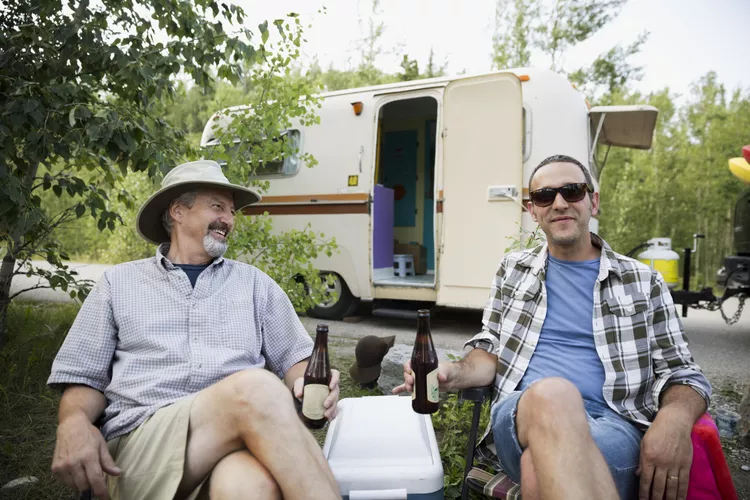For many, it’s essential to remember: Alcohol. Whether it’s six packs, glasses of wine, or cocktails, these are perfect for unwinding after a long day of RVing. However, the rules regarding alcohol and RVs can be peculiar because an RV serves both as temporary housing and as a vehicle. Consequently, let’s clarify how to handle alcohol while RVing.
Moving RVs
While some individuals opt to grab a six-pack upon arrival at their campsite, others prefer to stock the fridge with wine before hitting the road. Regardless of how you transport alcohol in your RV, certain rules must be observed while traveling.
It’s crucial to note that alcohol should never be opened in a moving RV or one that hasn’t reached its designated site. Although it may be tempting to enjoy a cold beverage during a long road trip, the law treats open containers in RVs the same as in regular vehicles. An open container inside a moving RV can lead to citations, even for passengers who haven’t consumed alcohol. Therefore, it’s advisable to avoid carrying open containers until you reach your campsite.
Moreover, under no circumstances should the driver of the RV consume alcohol. This rule is vital for safety on the road.
Campgrounds
Privately-owned campgrounds possess the authority to establish their own rules regarding alcohol consumption. Thus, it’s always recommended to inquire or check the RV park’s specific alcohol policy. If a private campground prohibits the consumption of alcohol, local or state laws become irrelevant within that park.
Public campgrounds also have varied regulations concerning alcohol. Some may permit any type of alcohol, while others may restrict it based on its alcohol-by-volume content, or altogether forbid it. As with private campgrounds, park rules must be observed regardless of local laws.
Dry Jurisdictions
Not all areas in the United States allow alcohol consumption. Numerous jurisdictions, such as certain townships and counties, remain completely dry. Consequently, consuming or transporting alcohol in these areas is illegal. You won’t face jail time for transporting alcohol through a dry region, but fines may apply. Regions like the Deep South and mountainous areas are often more likely to have such dry jurisdictions, so be sure to check the local laws before traveling.
Intoxication
While most parks and campgrounds permit alcohol, they discourage overindulgence or public intoxication. It is wise to avoid excessive drinking at RV parks as it might lead to eviction without a refund or possible action from local law enforcement for public intoxication or disturbing the peace. Remember that sitting around a campfire is in a public space; hence, alcohol should be enjoyed responsibly.
Across Borders
If you’re planning to bring your favorite drinks while driving across the border to Canada or Mexico, it’s important to adhere to all customs regulations, which vary based on your destination. Transporting an entire keg of Canadian beer might not be allowed, but there can be flexibility when it comes to bringing different types of alcohol back. If you’re ever uncertain, it’s better to ask customs officers ahead of time to avoid any issues.
Ultimately, alcohol can enhance a camping experience if handled with respect. Be prudent with alcohol consumption while RVing to ensure a safe and enjoyable journey. Remember: Never drink and drive.





